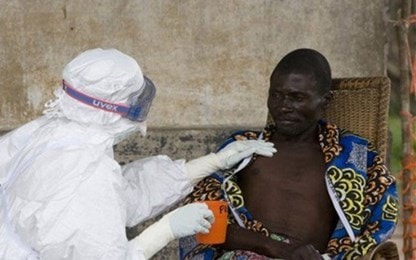World Health Organization holds emergency meeting on Ebola epidemic
The World Health Organization today, August 6, convened an emergency meeting to prevent the spread of the Ebola virus.
 |
| African people are being examined. (Photo: OMS) |
The meeting will decide whether to declare the current Ebola outbreak an "international emergency" and impose measures to prevent its spread, possibly even travel restrictions for people in affected countries.
The world is starting to worry as the Ebola epidemic is spreading rapidly, killing nearly 900 people in West Africa since the beginning of this year.
African leaders attending the US-Africa Summit have called on the world to join forces with Africa to prevent the spread of Ebola.
Mr. Macky Sall, President of Senegal said: "I want to tell the international community that Ebola is a dangerous virus. It is not just an African epidemic but a threat to the whole world. Intercontinental flights can turn this virus into a global crisis."
The Ebola outbreak began in March in a remote mountainous area of Guinea, where the death rate has been rising rapidly. Neighboring Sierra Leone and Liberia have also been affected, and the rate of spread is now even faster than Guinea. The countries have deployed troops along their borders to contain the outbreak. They also implemented a series of drastic measures last week, including closing schools and quarantining patients, amid fears that the disease could spiral out of control in their health systems.
Many countries around the world have advised their citizens not to travel to West Africa and have canceled flights to the region.
People fear Ebola because it is a highly contagious disease with symptoms of sudden fever, prolonged fatigue, muscle pain, headache, sore throat. This is followed by symptoms of vomiting, diarrhea, rash, liver and kidney failure. The mortality rate in infected cases can be up to 90%. There is currently no treatment or vaccine against this disease.
According to VTV.online






